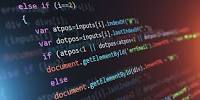Introduction
Computers are an essential part of our daily lives.
Almost every appliance we use has some kind of computer capable of performing
certain tasks: washing machines with different washing modes, game consoles for
moments of entertainment, super-powerful calculators, personal computers used
for a host of purposes, cell phones with endless applications and thousands of
other things.
All these devices with computers of different types
have something in common: someone "tells" them how to work, that is,
tells them what steps they must follow to accomplish a task. That's what
programming is all about: it's the activity by which people give a computer a
set of instructions so that, when executed, it can solve a problem. Those who
perform this activity are called programmers. Without the people who program
them, computers are useless, no matter how complex these devices are. The sets
of instructions that computers receive are called programs.
Programming is a creative process: on many occasions
the task in question can be accomplished by following different paths and the
programmer is the one who must imagine what they are and choose one. Some of
these paths may be better than others, but in any case, the computer will
simply follow the instructions devised by the programmer.
Unfortunately, computers do not understand Spanish or
any other human language. Instructions must be given to them in a language they
are able to understand. For that we must learn some programming language, which
is nothing more than an artificial language made up of a series of expressions
that the computer can interpret. Computers interpret our instructions very
literally, so when programming you have to be very specific. It is necessary to
respect the rules of the programming language and be clear in the indications
provided.
Now, why should we study programming in the Bachelor
of Statistics? The activity of statisticians is completely crossed by the need
to handle computer tools with ease that assist us in the different stages of
our work, from the collection and purification of data sets, through the
application of different analysis methodologies. , to the effective
communication of the results. For this reason, in the Introduction to
Programming course we will study the basic concepts of this discipline,
promoting the exercise of abstract and logical thinking necessary to be able to
understand ourselves skillfully with the computer and make it perform the tasks
we need.


Comentarios
Publicar un comentario